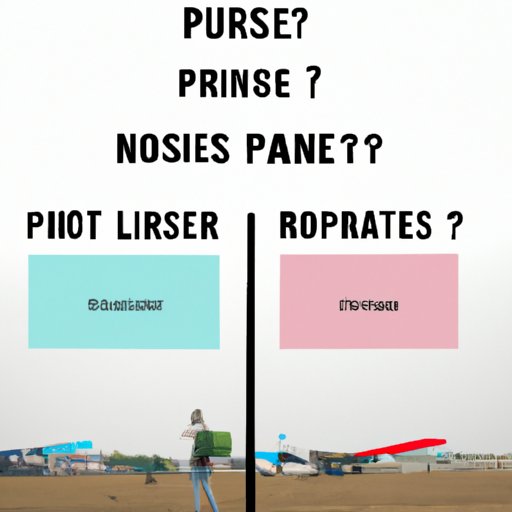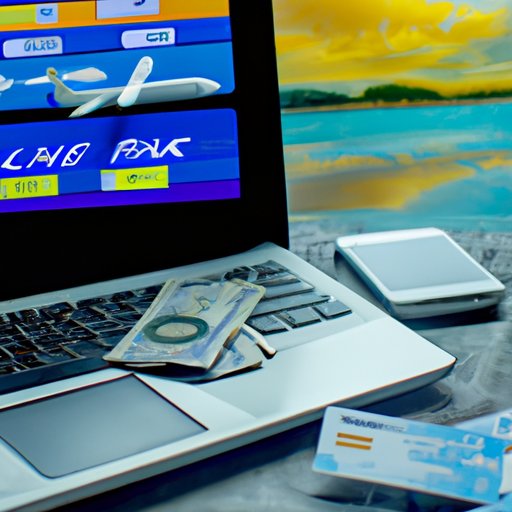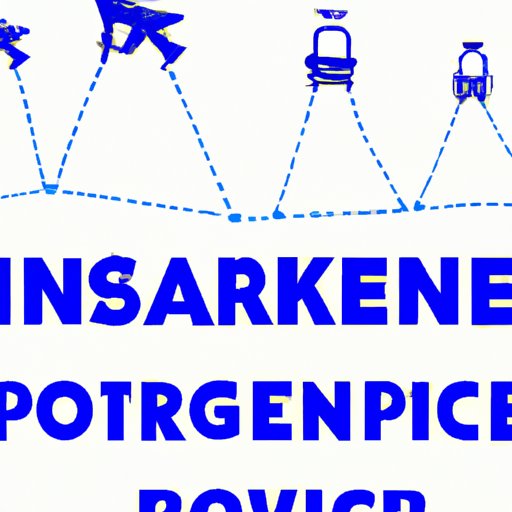Introduction
A Passenger Name Record (PNR) is an important part of the booking process when travelling. It is used by airlines, hotels, and other travel providers to store information about passengers and their bookings. The information stored in a PNR includes the passenger’s name, contact details, itinerary, and payment information. PNRs are also used to track passengers throughout the journey, from check-in to arrival.
The use of PNRs has become increasingly relevant in the travel industry due to its ability to provide detailed information about passengers and their bookings. This information can be used to improve customer service, streamline operations, and ensure compliance with government regulations. In addition, PNRs can help to reduce costs and increase efficiency in the travel industry.
How to Create and Manage Your Own PNR for Travel
Creating a PNR for travel is relatively simple. All you need to do is provide your basic personal information such as your name, address, contact details, and passport information. You will then be asked to provide your travel details such as your intended destination, dates of travel, type of ticket, and payment information. Once all of this is completed, the PNR will be created and stored in the airline or travel provider’s database.
Managing your own PNR is also straightforward. You can access your PNR through the airline or travel provider’s website or mobile app. Here you will be able to view and update your personal information, travel details, and payment information. You can also use the PNR to track your progress throughout the journey, from check-in to arrival.

Understanding the Different Types of PNRs in Travel
There are several different types of PNRs that are commonly used in the travel industry. Each type of PNR is designed to meet the specific needs of the travel provider. For example, some PNRs are used to track the progress of flights, while others are used to manage hotel bookings. Below are some of the most common types of PNRs and their associated benefits.
Flight PNRs: Flight PNRs are used to track the progress of a flight from check-in to arrival. These PNRs can include information such as the departure and arrival times, seat assignments, baggage allowances, and any special instructions. Flight PNRs are also used to monitor the status of a flight in case of delays or cancellations.
Hotel PNRs: Hotel PNRs are used to manage hotel bookings. These PNRs can include information such as the guest’s name and contact information, room type, payment details, and any special requests. Hotel PNRs are also used to track the progress of a guest’s stay, from check-in to checkout.
Car Rental PNRs: Car rental PNRs are used to manage car rentals. These PNRs can include information such as the driver’s name and contact information, the type of vehicle, payment details, and any special requests. Car rental PNRs are also used to track the progress of a rental, from pick-up to drop-off.

The Advantages of Using a PNR When Booking Travel
Using a PNR when booking travel can be beneficial in a number of ways. Firstly, it can simplify the booking process as all the necessary information is stored in one place. This makes it easier for both the traveller and the travel provider to access and manage the booking. Secondly, it can help to reduce costs by providing the travel provider with the necessary information to make informed decisions about pricing and promotions. Finally, it can improve the overall customer experience by enabling the travel provider to offer more tailored services.
In addition to these advantages, using a PNR can also have positive implications for security. As all the necessary information is stored in one place, it can help to reduce the risk of identity theft and fraud. Furthermore, using a PNR can help to ensure that the correct information is provided to government authorities and immigration officials.

Examining Trends in the Use of PNRs in the Travel Industry
The use of PNRs has become increasingly popular in the travel industry in recent years. This is largely due to the increasing demand for more efficient and cost-effective solutions in the industry. As a result, many travel providers have begun to invest in new technologies such as cloud-based systems and mobile apps to improve their PNR management capabilities.
In addition, there has been a growing trend towards the use of data analytics to gain insights into customer behaviour. This has enabled travel providers to better understand the needs of their customers and improve their services accordingly. Finally, the increasing prevalence of online booking platforms has made it easier for travellers to create and manage their own PNRs.
Conclusion
In conclusion, a Passenger Name Record (PNR) is an important part of the booking process when travelling. It is used to store information about passengers and their bookings, which can be used to improve customer service, streamline operations, and ensure compliance with government regulations. There are several different types of PNRs, each of which has its own advantages and benefits. Additionally, using a PNR can help to reduce costs and increase efficiency in the travel industry. Finally, there have been some recent trends in the use of PNRs in the travel industry, such as the increased use of data analytics and the prevalence of online booking platforms.
Overall, understanding the importance and relevance of PNRs can be beneficial for both travellers and travel providers. Travellers can use PNRs to simplify the booking process and ensure their security, while travel providers can use PNRs to improve customer service and streamline operations.
(Note: Is this article not meeting your expectations? Do you have knowledge or insights to share? Unlock new opportunities and expand your reach by joining our authors team. Click Registration to join us and share your expertise with our readers.)
